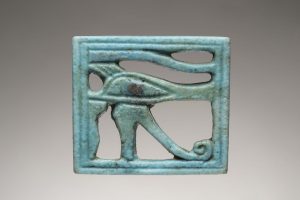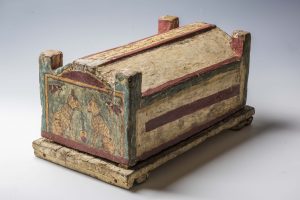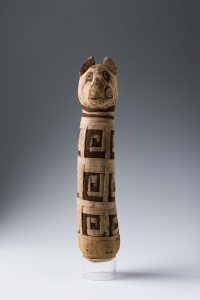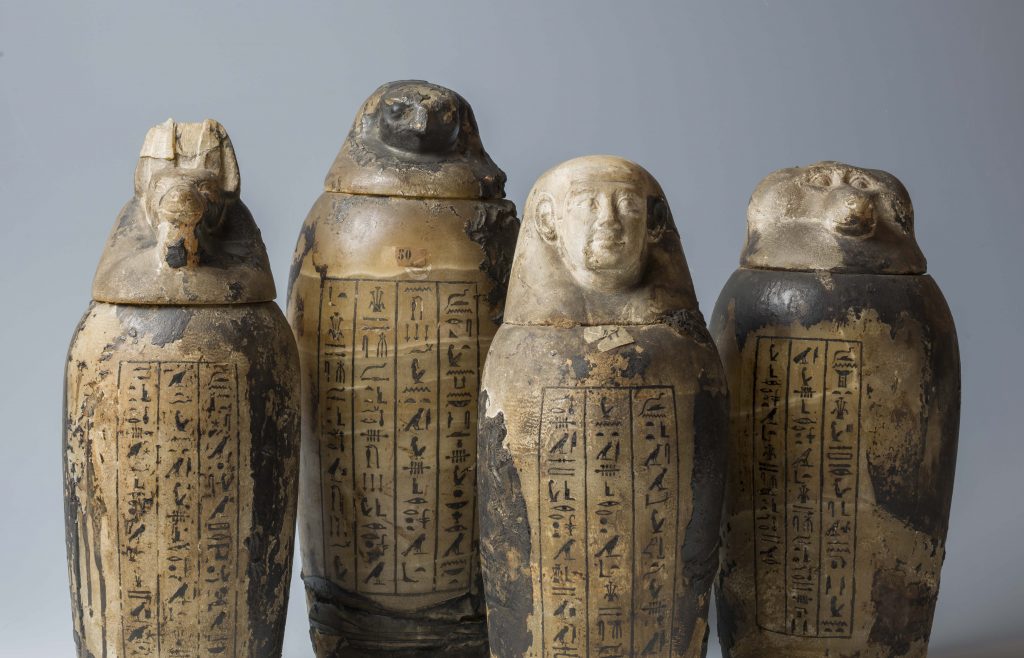São Paulo – Egyptian history is taking over Rio de Janeiro’s Centro Cultural Banco do Brasil (CCBB) starting October 12. “Ancient Egypt: from day-to-day to eternity” will feature 140 pieces straight from Museo Egizio, in Turin, Italy, which boasts the second-biggest collection on Egypt in the world – trailing only the Cairo Museum, in Egypt’s capital.
But curators Pieter Tjabbes and Paolo Marini want more. The idea is to also captivate people unfamiliar with the subject. Tjabbes explains that the exhibit will combine antiquities and ‘instagrammable’ spots conducive to photos that spread through the internet and ultimately become advertising for an event.
“Many people aren’t in the habit [of attending exhibitions], or they think exhibitions are not for them. We’re trying to change that through the internet. You get more people to come this way. They want to know where this funny picture was taken, or where that place is. All of a sudden, they realize that this space is meant for them,” the curator told ANBA over the phone. In the past, Tjabbes has curated shows by Jean Michel Basquiat and Mondrian at the CCBB.
Apart from the original items, organizing company Art Unlimited worked for over a year to set up a mega-exhibit on the period from 4,000 to 30 BC.
The show opens at 3pm as Museo Egizio director Christian Greco sits down for a chat with the audience. Admission is free, with tickets available an hour prior to the event
Ancient Egypt

The show will mark the 30th anniversary of CCBB-RJ. It will late travel to São Paulo, Brasília and Belo Horizonte. “The subject matter is a very personal choice. I’m an art historian and all my life I’ve tried to focus on subjects that fascinate me. Ancient Egypt is one of them. Even though I’m not a specialist in Egyptology, we agreed on a line of thought with the curator of Museo Egizio. I adapted the show to our Brazilian audience, the majority of whom never had any contact with Egypt, let alone Ancient Egypt,” said Tjabbes.
“We must do whatever we can so that the people who aren’t habituated to this, who weren’t lucky to have wealthy parents who could take them on trips and exhibitions, can feel at home too,” he said.
Right at the entrance to the building there will be a replica of a 2-meter-tall statue of pharaoh Ramses II. Inside is a 6-meter-high replica of the Cheops Pyramid. Next to it is a playful room where visitors will see their faces inside the funeral mask of Tutankhamun. “You get the feeling of being in the sarcophagus. Some of the games work with people’s fascination with mummies, pharaohs and pyramids. There’s a place for taking pictures in front of the sphynx,” he explained.
The exhibit is divided into daily life, religion, and eternity. Each features their own set of colors and lighting. “In the temple, the further you go inside, the dimmer the light gets. You go from yellow to green to blue, and it grows darker too,” he explained.
Day-to-day

The yellow tone at the beginning also refers to the sunlight. “To show something many people forget about. It seems that they only thought about death, but it’s the other way around. Apparently, Egyptians appreciated life so much they liked to think they’d keep living after passing away. And every effort was to guarantee eternal life after the mummification,” he considered.
The daily life is presented in videos and photos – of the Nile, archeological sites, tombs, and important objects. Besides the images, there are paintings, writings, ornaments and things such as cosmetic bottles, shoes and outfits that reveal aspects of the Egyptian civilization.
Religion
The green for religions takes visitors to a temple. “The most important bastions were those for economic, pollical power,” Pieter points out. There, people would leave the gods offers such as small statuettes or – when one was richer – a sacred animal mummy. Egyptian religion was polytheist, marked by many major and minor deities. “Cats [associated to goddess Bastet] were very popular. Whey someone was richer, they would send a mummified cat inside a coffin. The one we have at the exhibit has the offeror’s plead for a healthy life engraved in it,” he explained.
Eternal life

The third room addresses funeral traditions and the afterlife. The blue for eternity shows the tombs. The exhibition features six original coffins, and one of them holds the mummy of a woman called Tararo from the 25th dynasty. “I believe Egypt, their life concept, their religion, has everything to do with our lifestyle. Everybody has some question about what happens in the afterlife. And their fascination for this way of preserving the body, the mummification. That’s why the mummy is in the end,” the curator said.
At last, there’ll be a replica of the tomb of Nefertari, wife of Ramesses II – who’s represented in the statue in the beginning of the exhibition. “It’s a very accurate tomb, painted and relieved. You feel like you were in Egypt,” Pieter explains.
Quick Facts
Ancient Egypt: From day-to-day to eternity
October 12 to January 27 – CCBB Rio de Janeiro | Rua Primeiro de Março, 66 – Centro
+55 (21) 3808-2020 | Wednesday to Monday, 9 am to 9 pm | Free admission | All ages
Lecture with Turin’s Museo Egizio director Christian Greco
October 12 at 3 pm | Tickets will be issued one hour before the lecture being
CCBB Rio de Janeiro: 10/12/2019 to 1/27/2020
CCBB São Paulo: 2/29/2020 to 5/11/2020
CCBB Distrito Federal: 6/2/2020 to 8/30/2020
CCBB Belo Horizonte: 9/16/2020 to 11/23/2020
Centro Cultural Banco do Brasil
Free admission
Translated by Gabriel Pomerancblum Guilherme Miranda




